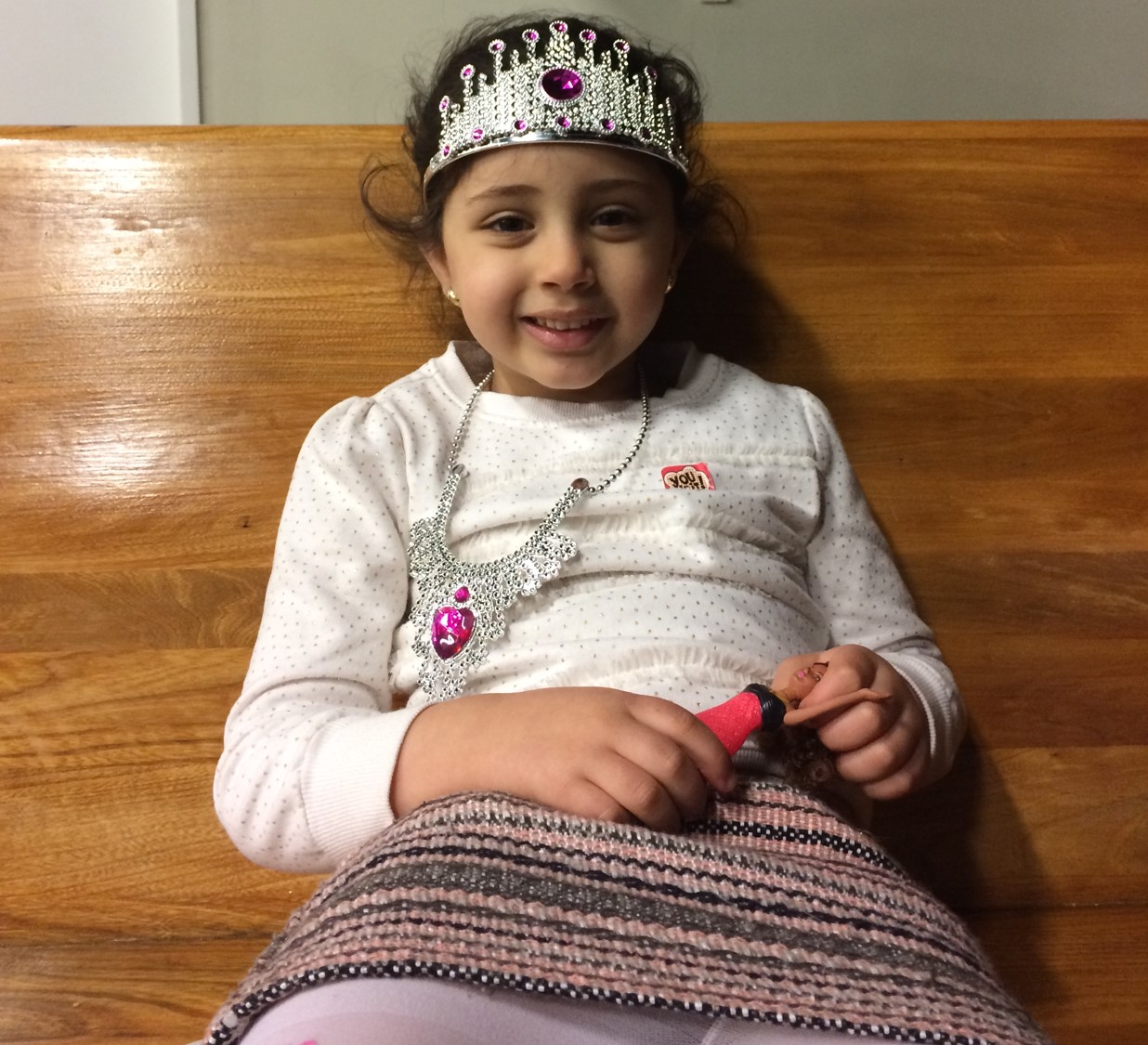Make-Believe Play I asked her tell me about yourself and she went straight up to bring her Barbie doll, crown and the necklace and started to make rules about the kingdom part of her imagination as a princess
Early Childhood: Development through Appreciating Observable Characteristics, Imitation, and Make-Believe
The age of “early childhood” is where a significant amount of body and brain development occurs. As the body grows at a rapid rate, the brain structures, like the reticular formation and hippocampus, also develop, creating alertness and memory, respectively. The early child, age two to six, is mostly involved in magical thoughts, values observable factors, and imitates their parents. Although it may seem to the child that she is the center of her parents’ and the environments attention as evidenced by her egocentric discussions, her experiences and feelings are shared by almost entirely all children in her age group. In my interview with Juliana, a four-year-old, much of what she experiences and describes as her concept of self and relationship with family, friends, and abstract concepts are related to theories in psychology. Juliana’s ability to observe real nuances of the environment and exercise imitation and make belief, along with her parents’ contribution, are shaping her concept of self (i.e. identity). Through analyzing my interview with Juliana, this paper argues that appreciating observable characteristics, imitation, and make-believe are the ways Juliana experiences parenting and develops her identity.
Identity
Juliana is a four-year-old, White child, “from Egypt,” as she describes her and her parents’ origins. Piaget’s preoperational theory describes children, age four, at the borderline between the imaginary stage and being able to provide reasonable explanations. When I ask Juliana to describe herself, she runs outside to bring her crown and necklace to show that she is a princess.
Furthermore, when I ask Juliana about her parents, sibling, friends or her faith, she points to external factors and says magical thoughts. She relates her love to her mom because her mom gives her the magic stick and takes her to MacDonald’s. Juliana also has an imaginary friend, Barbie, who she plays with and grooms daily. She also recalls Barbie’s song from memory. At age four, Juliana thinks she is extraordinarily special and unique – the extent of her self-concept. For the moment, she mostly enjoys life as it is, and enjoys external possessions. Juliana makes several reasonable explanations to simple questions but also possesses magical thoughts, which relate to Piaget’s theory.
Early children may not yet appreciate quality traits, like being a shy, kind, etc. but in describing their emotions and relationship with friends regarding what they like and dislike about them, their identity develops. For example, when I ask why does she love her sister and friend Jonah, Juliana answers, "because [she] like[s] to play with them.” But she would not say I love Jonah because he is kind to me. Children’s ability to recognize the real nuances in the environment and adapt to different people and situations helps shape their identity.
Make-Believe play
According to the Piaget’s make-believe play, children should pretend that something is true or real even when it is not. By the age of two, sociodramatic play rapidly increases in complexity involving several roles with elaborate plots. Juliana has been wearing a crown and necklace – part of her imagination, thinking she is a princess. She shows them off to her friends and passerby who greet her and goes into adventures and makes rules about the kingdom. Compared to non-pretend activities, like drawing, this play helps Juliana make long-lasting connections with other kids and become socially competent, leading to her identity development.
Parenting
Erikson’s theory for the ages, two to seven, explains the dilemma of facing “Initiative versus Guilt.” Should Juliana be able to respond when her mom gives rules, internalize the rules, and act to receive a reward, she will pass the "Initiative versus Guilt phase," develop a sense of purpose, and initiate her actions. Indeed, Juliana can arrange her room daily and gains her mother’s acceptance. Furthermore, Juliana picks her mom’s eating habits and eats all the food her mother prepares for her with joy, making her mom even happier with her. Juliana’s ability to please and imitate her mom allows her to develop a new sense of purpose, initiate her actions, and shape her self-concept on the long term.
Parenting styles high in discipline and low on nurturance might lead children to become anxious and unhappy, whereas parenting that is high in control and high on nurturance will likely develop the child’s self-esteem and moral maturity. Juliana’s self-description of her parents' parenting style, shows they are authoritarian, exercising strong discipline and high nurturance. For example, she loves her dad because he takes her out and stays with her when her mom leaves the house. Also, her parents often take her out to places she likes, like Chucky Cheese and MacDonald’s. However, they still enforce rules like cleaning her room, which Juliana happily does. This authoritarian parenting style along with Juliana’s ability to recognize real nuances of the environment and imitate her parents will help shape her character.
***Early Childhood is a stage of life where major body and cognitive developments occur even as precise as synapses, particularly in the hippocampus and reticular formation for memory formation and alertness. These changes predispose the child, in our case Juliana, to absorb physical features of the environment leading her to imitate her parents and follow their rules to gain a sense of purpose and initiate her actions in the long term. She also recognizes observable characteristics in her friends and family, leading her to engage in make-believe play which strengthens her social competencies. Parenting takes a significant role in developing the child’s self-esteem and moral maturity. Together, Juliana’s ability to recognize observable characteristics, imitate, engage in make-believe, gain the initiative, and initiate her actions and her parents’ involvement will help shape her self-concept. Juliana’s experience relates to Piaget’s Preoperational and Erikson’s Initiative versus Guilt theories as she observes physical nuances of the environment and develops a sense of purpose.





